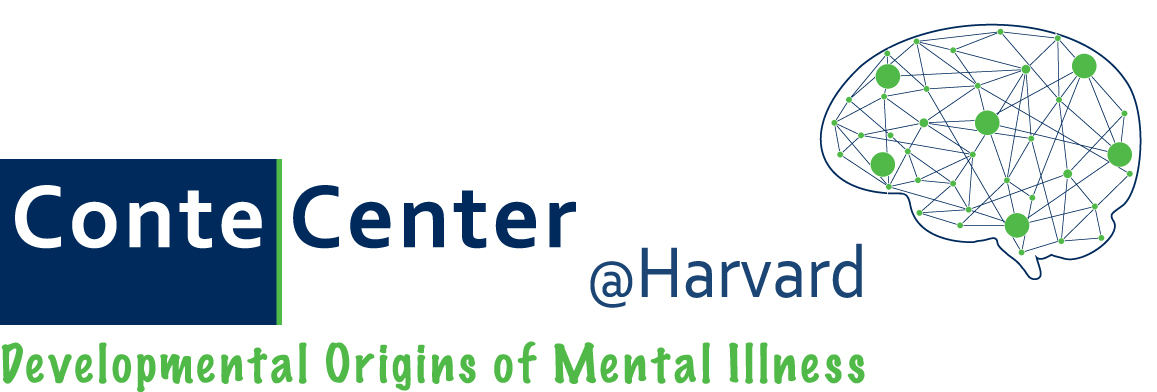Paola Arlotta, PhD
Chair, Harvard Department of Stem Cell and Regenerative Biology
Golub Family Professor of Stem Cell and Regenerative Biology
Principal Faculty, Harvard Stem Cell Institute
Email: paola_arlotta@harvard.edu
Lab website: https://hscrb.harvard.edu/res-fl-arlotta
While our work is mostly rooted in development of the murine cerebral cortex, a recent interest of our lab has been building in vitro models that resemble the cellular complexity, tissue architecture and local connectivity of the developing human cerebral cortex, which can become a platform for understanding higher-order circuit function and dysfunction that is affected in neurodevelopmental and neuropsychiatric cortical disease. To this end, we are generating next-generation, long-term cultures of 3D cerebral organoids, starting from human induced pluripotent stem cells (iPSCs) derived from control individuals, from patients with neuropsychiatric or neurodevelopmental pathology, or engineered to carry specific genetic mutations associated with these diseases.
About Professor Arlotta
Paola Arlotta is interested in understanding the molecular laws that govern the birth, differentiation, and assembly into working circuitry of clinically relevant neuron types in the cerebral cortex. The complexity of the nervous system fascinates her, and she is driven to integrate developmental and evolutionary knowledge to inform novel strategies for circuit repair in the cortex. Arlotta received her Master’s in Biochemistry from the University of Trieste, Italy, and her Ph.D. in Molecular Biology from the University of Portsmouth, UK. She came to Boston as a postdoctoral fellow in Neuroscience at Harvard Medical School and, in 2008, she joined the Harvard faculty. In 2014 she was promoted to Professor in the Department of Stem Cell and Regenerative Biology, and in 2018 she was appointed the inaugural professor to the Golub Family Chair and later appointed to the Chairmanship of the Department itself. She has been a Principal Faculty Member at the Harvard Stem Cell Institute since 2007 and is also affiliated with the Center for Brain Science and with the Conte Center at Harvard. Arlotta is the recipient of many awards, including the 2017 George Ledlie Prize from Harvard and a 2018 von Humboldt Foundation research award. Her work has been published in Science, Nature, Nature Neuroscience, Nature Cell Biology, and Neuron.
News
The Harvard Gazette: Unraveling the Brain’s Secrets - Harvard scientists are among those who will receive more than $150 million in funding over the next five years through the National Institute of Health’s Brain Research through Advancing Innovative Neurotechnologies (BRAIN) Initiative. This marks part of an effort to gain insight into the workings of the brain.
Recent Publications
Editorial overview: Developmental neuroscience 2017.
Arlotta, P. & Vanderhaeghen
Curr Opin Neurobiol , 42 , pp. A1-A4.
Cell diversity and network dynamics in photosensitive human brain organoids.
Quadrato, G., et al., 2017.
Nature , 545 (7652) , pp. 48-53
Changes in the Excitability of Neocortical Neurons in a Mouse Model of Amyotrophic Lateral Sclerosis Are Not Specific to Corticospinal Neurons and Are Modulated by Advancing Disease.
Kim, J., et al., 2017.
J Neurosci , 37 (37) , pp. 9037-9053
Present and future of modeling human brain development in 3D organoids.
Quadrato, G. & Arlotta, P., 2017.
Curr Opin Cell Biol , 49 , pp. 47-52
Seq-ing the cortex one neuron at a time.
Chen, H.-H. & Arlotta, P., 2016.
Nat Neurosci, 19 (2) , pp. 179-81.
Stressed out? Healing Tips for Newly Reprogrammed Neurons.
Quadrato, G., Zhang, A.C. & Arlotta, P., 2016.
Cell Stem Cell , 18 (3) , pp. 297-9.
The promises and challenges of human brain organoids as models of neuropsychiatric disease.
Quadrato, G., Brown, J. & Arlotta, P., 2016.
Nat Med , 22 (11) , pp. 1220-1228.
Seven actionable strategies for advancing women in science, engineering, and medicine.
Smith, K.A., et al., 2015.
Cell Stem Cell , 16 (3) , pp. 221-4.
Homeotic Transformations of Neuronal Cell Identities.
Arlotta, P. & Hobert, O., 2015.
Trends Neurosci , 38 (12) , pp. 751-62
Instructing Perisomatic Inhibition by Direct Lineage Reprogramming of Neocortical Projection Neurons.
Ye, Z., et al., 2015.
Neuron , 88 (3) , pp. 475-83
DeCoN: genome-wide analysis of in vivo transcriptional dynamics during pyramidal neuron fate selection in neocortex.
Molyneaux, B.J., et al., 2015.
Neuron , 85 (2) , pp. 275-288.
Distinct profiles of myelin distribution along single axons of pyramidal neurons in the neocortex.
Tomassy, G.S., et al., 2014.
Science , 344 (6181) , pp. 319-24.
Gene co-regulation by Fezf2 selects neurotransmitter identity and connectivity of corticospinal neurons.
Lodato, S., et al., 2014.
Nat Neurosci , 17 (8) , pp. 1046-54

